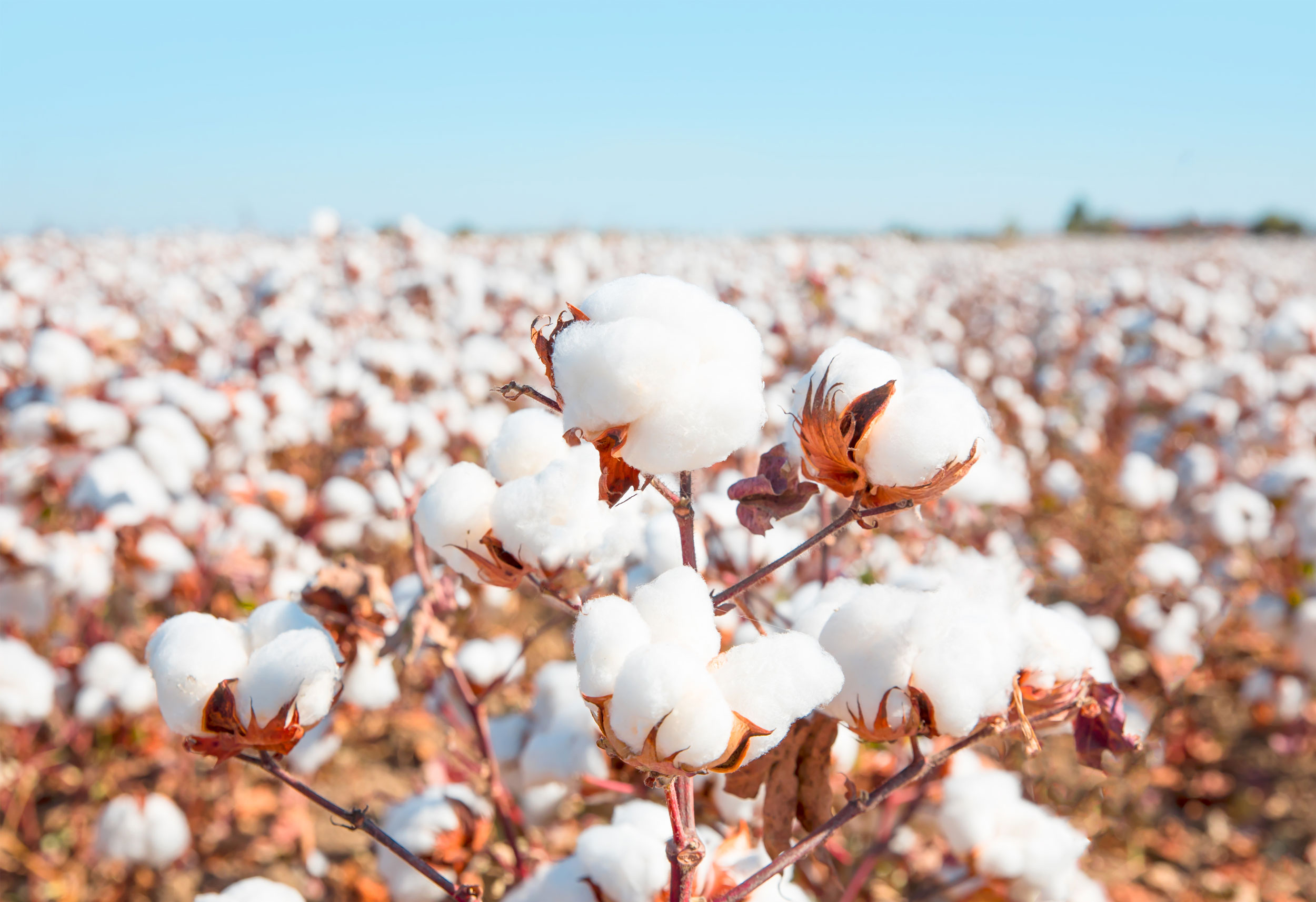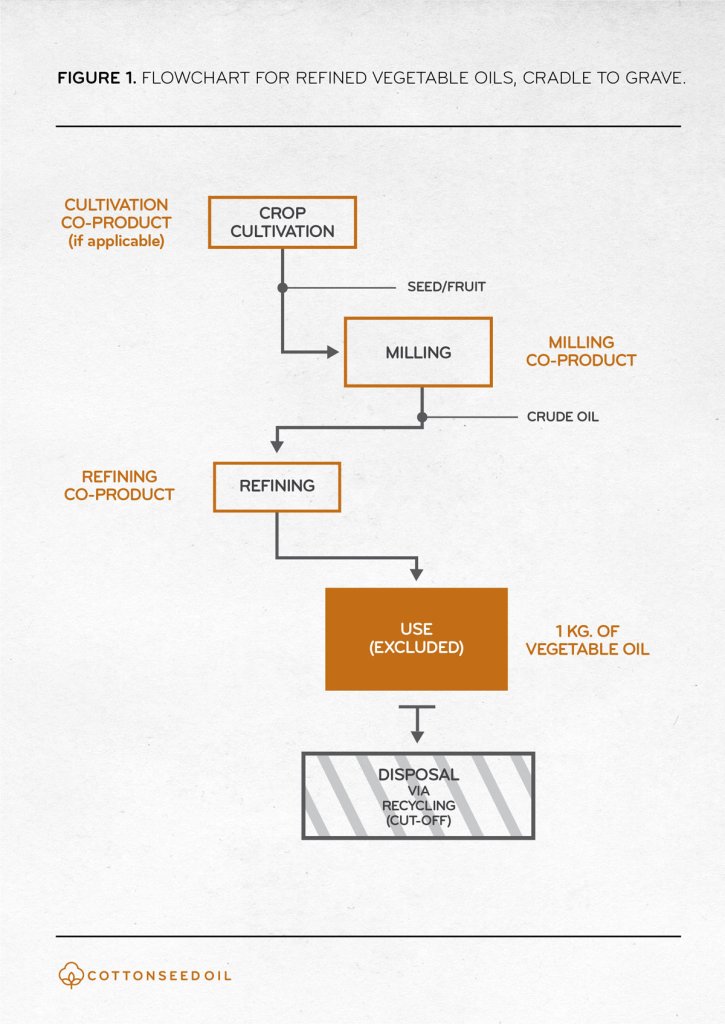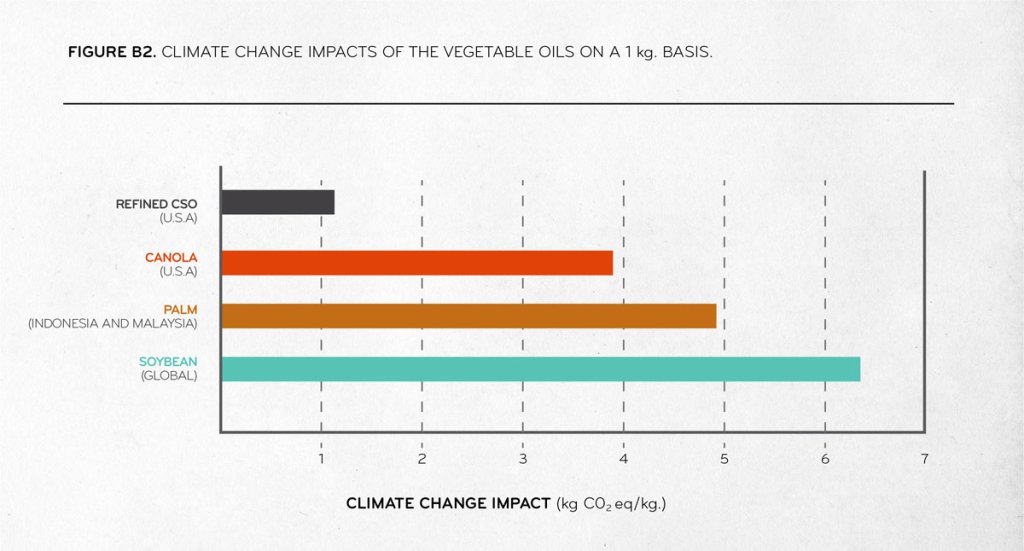- Articles
- November 9, 2022
Refined Cottonseed Oil Is a Climate-Friendly Option for Frying, Study Finds

In an analysis of the environmental impacts of four commonly used vegetable oils, U.S. refined cottonseed oil was shown to have clear advantages for climate change with the potential to reduce climate change impacts for restaurants using frying oil by up to 83%1.
The study analyzed the life cycles – cultivation, milling, refining and transportation – of U.S cottonseed oil, global soybean oil, U.S. canola oil and Indonesian and Malaysian palm oil. The researchers then analyzed the impacts of each of these life cycle stages on various environmental impact categories: global warming, water-related impacts, resource-related impacts and air-related impacts.
 In the study, cultivation emerged as the largest contributor to overall environmental impact. Refining and milling contributed uniquely to different impact categories, and transportation was shown to have a minimal impact.1 Figure 1 shows a visual representation of the complete lifecycle of vegetable oils.
In the study, cultivation emerged as the largest contributor to overall environmental impact. Refining and milling contributed uniquely to different impact categories, and transportation was shown to have a minimal impact.1 Figure 1 shows a visual representation of the complete lifecycle of vegetable oils.
Cottonseed oil is a byproduct of cotton lint production. Therefore, the life cycle impacts of cotton cultivation are split between cotton lint used for textiles and cottonseed used for oil. When compared to other the frying oils, cottonseed oil had the lowest climate change impacts.1 When considering other impact categories, cottonseed oil generally compared favorably, however, some tradeoffs existed in some impact categories.
Additionally, cottonseed oil production showed a lower impact on air quality1 and a lower impact on the depletion of resources such as fossil fuels.1 Canola oil had the largest impacts in these categories, while cottonseed oil, palm oil and soybean oil showed less than 40% of the impact of canola.
Cottonseed oil also performed well in some aspects of water-related impacts. Compared to canola oil, cottonseed oil showed less fertilizer runoff into nearby bodies of water, which can have a negative impact on the ecosystem.1
Implications for Restaurants Using Frying Oil
The global food supply chain is a large contributor of greenhouse gas emissions, accounting for 26% of global greenhouse gas emissions in 2018; food processing accounted for 4% of this total, according to a study from Our World in Data.2
Many fast-food restaurants have set goals to reduce greenhouse gas emissions. This includes McDonald’s, which has pledged to reduce emissions from its restaurants and offices by 36% by 2030.
One way fast-food restaurants can work toward achieving these climate goals is by switching frying oil to refined cottonseed oil.1 Switching to cottonseed oil from soybean oil, for example, would reduce greenhouse gas emissions by 83%, as illustrated in Figure B2. With the average American consuming an estimated 29 lbs of french fries every year, this switch would represent a savings of 3.6-7.0 kg of CO2 per year per average American consumer. The implications for large restaurant chains are staggering. McDonald’s produces 9 million tons of french fries every day. Switching frying oil to cottonseed oil would potentially save 1,130 to 2,188 tons of CO2 each day.1
Though no single oil performed the best in all environmental categories, refined cottonseed oil appears to be the best choice for restauranteurs looking to reduce their environmental impact.1 The impact categories where cottonseed oil performed the worst had the highest levels of uncertainty and showed the least significant differences between oils.1 This research demonstrates that cottonseed oil has clear benefits as compared to other alternatives. Any user of frying oil could significantly reduce the impacts of frying oil sourcing by switching to cottonseed oil while benefiting from all of the other cottonseed oil performance characteristics.
Learn more about cottonseed oil and how to use it here or download the full life cycle assessment here.



